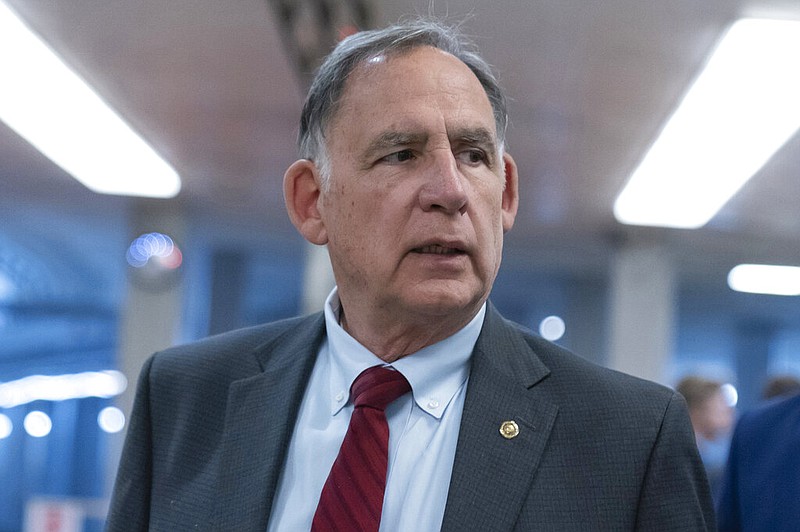A push in Washington to transform the U.S. derivatives regulator into a top crypto watchdog is gaining steam with a Senate bill that would give the Commodity Futures Trading Commission sweeping new powers to oversee the asset class.
It's the latest attempt by Congress to formulate ideas on how to oversee the multibillion-dollar industry that has been racked by collapsing prices and lenders halting operations -- often overnight.
The CFTC, whose purview is now mostly limited to crypto derivatives, would get the ability to police trading in the largest digital assets under the plan introduced Wednesday by Democrat Debbie Stabenow of Michigan and Republican John Boozman of Arkansas.
"Our bill will empower the CFTC with exclusive jurisdiction over the digital commodities spot market, which will lead to more safeguards for consumers, market integrity and innovation in the digital commodities space," Boozman said in a statement.
The legislation backed by the two top members of the Senate Agriculture Committee carries particular heft because their panel oversees the regulator. Sens. Cory Booker, a New Jersey Democrat, and John Thune, a South Dakota Republican, are also original cosponsors of the bill.
"One in five Americans have used or traded digital assets -- but these markets lack the transparency and accountability that they expect from our financial system," Stabenow said in a statement. "Too often, this puts Americans' hard-earned money at risk."
This year, crypto investors have seen prices plunge and companies crater with fortunes and jobs disappearing overnight, and some firms have been accused by federal regulators of running an illegal securities exchange.
Bitcoin, the largest digital asset, trades at a fraction of its all-time high, down from more than $68,000 in November 2021 to about $23,000 on Wednesday. Industry leaders have referred to this period as a "crypto winter," and lawmakers have been desperate to implement stringent oversight.
Crypto industry executives, meanwhile, also have pressed for the CFTC to get more power as they resist Securities and Exchange Commission Chair Gary Gensler's assertions that many digital coins are securities under the SEC's purview.
The new proposal would give the CFTC direct oversight of tokens that qualify as "digital commodities," which according to a summary of the plan include Bitcoin and Ether -- the two largest digital assets.
Rostin Behnam, the chairman of the CFTC, has said his agency is well-positioned to take on a greater role. The agency has also been working with lawmakers crafting the plan, which is just one of a spate of crypto bills.
To become law, it would require multiple votes in the Senate and a version would also need to pass the House.
In addition to new powers, the senators' bill would direct the CFTC to undertake a number of studies.
The regulator would have to write a report on energy consumption and sources used to create and trade digital commodities, and publish the findings on its website. Democrats have increasingly raised concerns about the amount of electricity used in crypto mining and how it might exacerbate climate change.
The regulator would also have to study the racial, ethnic and gender demographics of customers participating in digital-asset markets to inform rulemaking, outreach efforts and other related activities.
The "digital commodity" label would certainly be welcomed by crypto enthusiasts who have been desperately trying to avoid assets getting hit by the security tag, which carries a range of strict investor-protection requirements at the SEC.
Concerns that the SEC will assert more jurisdiction have been rising since last month when the agency took the unusual step of identifying nine assets that it considered to be securities as part of an insider trading case.
The senators' plan would have the CFTC impose a series of new oversight measures. The requirements would preempt state rules, according to the overview of the bill.
Digital-commodity platforms, including brokers, custodians, dealers, and trading facilities, would have to register with the CFTC. "Associated persons" of dealers and brokers working with those assets would also have to meet registration requirements.
At the same time, the bill would require the CFTC to put in place customer-protection rules. Platforms would have to disclose major conflicts of interest and trading risks, as well as face marketing and advertising standards.
Information for this article was contributed by Allyson Versprille of Bloomberg News, as well as Fatima Hussein and Ken Sweet of The Associated Press.
